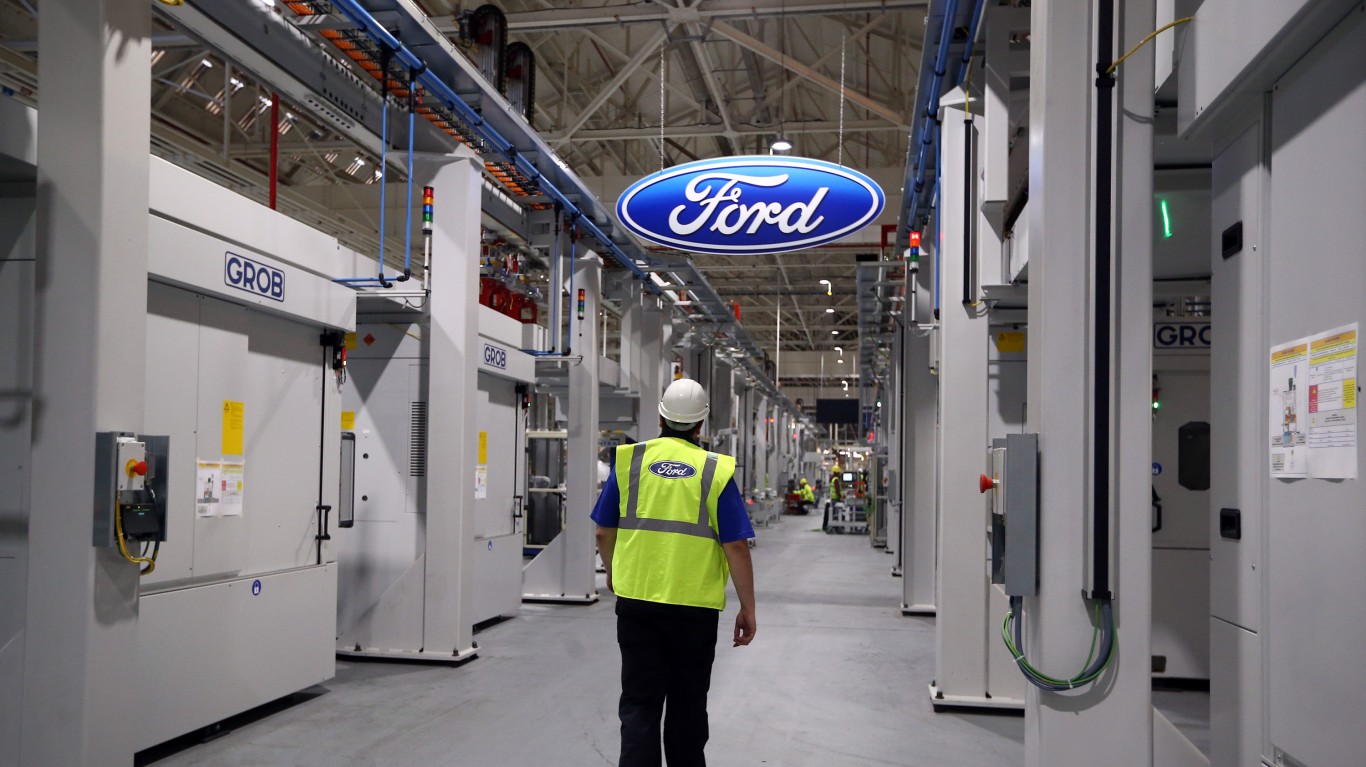
U.S. auto sales for the month of March are forecast to be 35.5% lower than in March 2019 and 23.4% below the February 2020 total. For the quarter, sales are forecast to fall by nearly 12% year over year.
That forecast, from industry analysts at Edmunds.com, was published on Wednesday, the same day that S&P Global Ratings downgraded its credit rating on Ford Motor Co. (NYSE: F) from BBB- to BB+. The new rating lowers Ford’s debt to junk status. Moody’s Investors Service also dropped Ford’s rating Wednesday, from Ba1 to Ba2, from junk to even junkier.
Now that two of the three ratings services have lowered their ratings on Ford debt, the company has attained official junk status. Fitch Ratings has Ford rated at BBB-, the firm’s lowest investment-grade rating. That probably won’t last much longer.
The new ratings follow by one day an announcement by Ford that it had agreed to borrow $15.4 billion in unused credit. Of the total, $13.4 billion came from its corporate credit facility and $2 billion from its revolving credit line. With this move, Ford has used up all its available borrowing.
S&P summed it up simply:
The coronavirus has delivered supply-side and demand-side shocks to light-vehicle demand. The decision to downgrade Ford Motor Co. investment grade to speculative grade reflects that the company’s credit metrics and competitive position became borderline for the investment-grade rating prior to the coronavirus outbreak, and the expected downturn in light-vehicle demand made it unlikely that Ford would maintain the required metrics.
Moody’s elaborated:
Ford remains vulnerable to shifts in market sentiment in these unprecedented operating conditions and the company is vulnerable to the outbreak continuing to spread. We regard the coronavirus outbreak as a social risk under our ESG framework, given the substantial implications for public health and safety. Today’s action reflects the impact on Ford of the breadth and severity of the shock, and the broad deterioration in credit quality it has triggered.
Earlier this week, Ford announced that assembly plants in India, Vietnam, Thailand and South Africa had shut down on March 21. The closures are expected to last “several weeks.” The duration of the closures will depend on the pandemic situation, national restrictions, supplier constraints and dealer stock requirements. Operations in the United States, Canada and Mexico had been idled a week earlier.
Thursday morning, Ford said it will restart operations at some North American plants on April 6. The Hermosillo plant will operate one shift beginning on that date, while the assembly plants in Dearborn, Kentucky, Kansas City and Ohio will restart on April 14. Several other manufacturing facilities are also planned for an April 14 restart. Ford also said it would continue to monitor “public health conditions as well as supplier readiness and will adjust plans if necessary.”
In Thursday’s premarket session, Ford stock traded down about 3.7%, at $5.19 in a 52-week range of $3.96 to $10.56.
Cash Back Credit Cards Have Never Been This Good
Credit card companies are at war, handing out free rewards and benefits to win the best customers. A good cash back card can be worth thousands of dollars a year in free money, not to mention other perks like travel, insurance, and access to fancy lounges. See our top picks for the best credit cards today. You won’t want to miss some of these offers.
Flywheel Publishing has partnered with CardRatings for our coverage of credit card products. Flywheel Publishing and CardRatings may receive a commission from card issuers.
Thank you for reading! Have some feedback for us?
Contact the 24/7 Wall St. editorial team.



